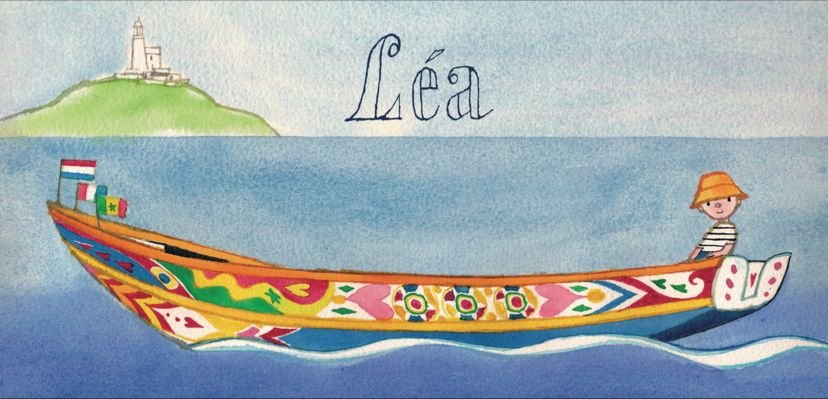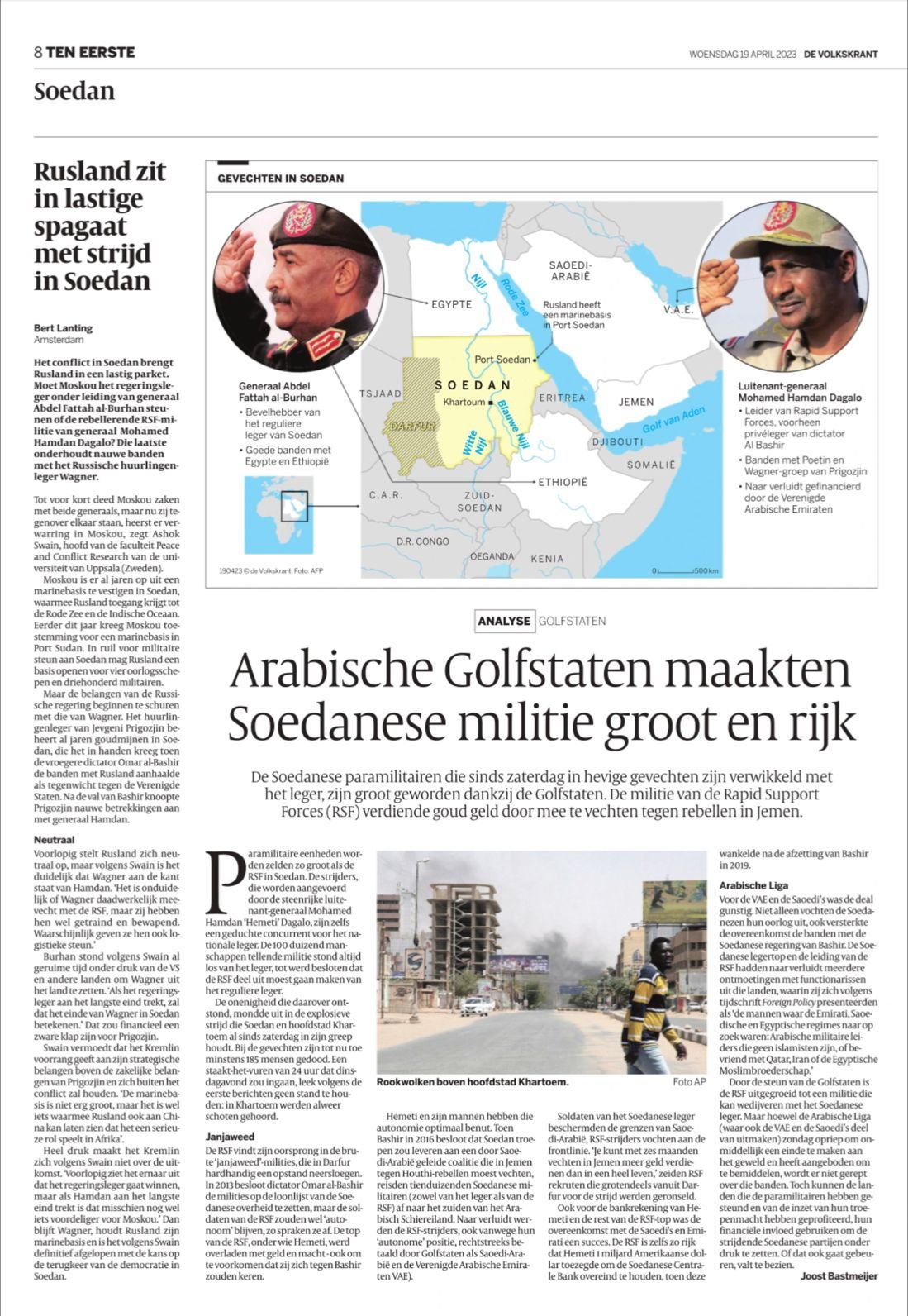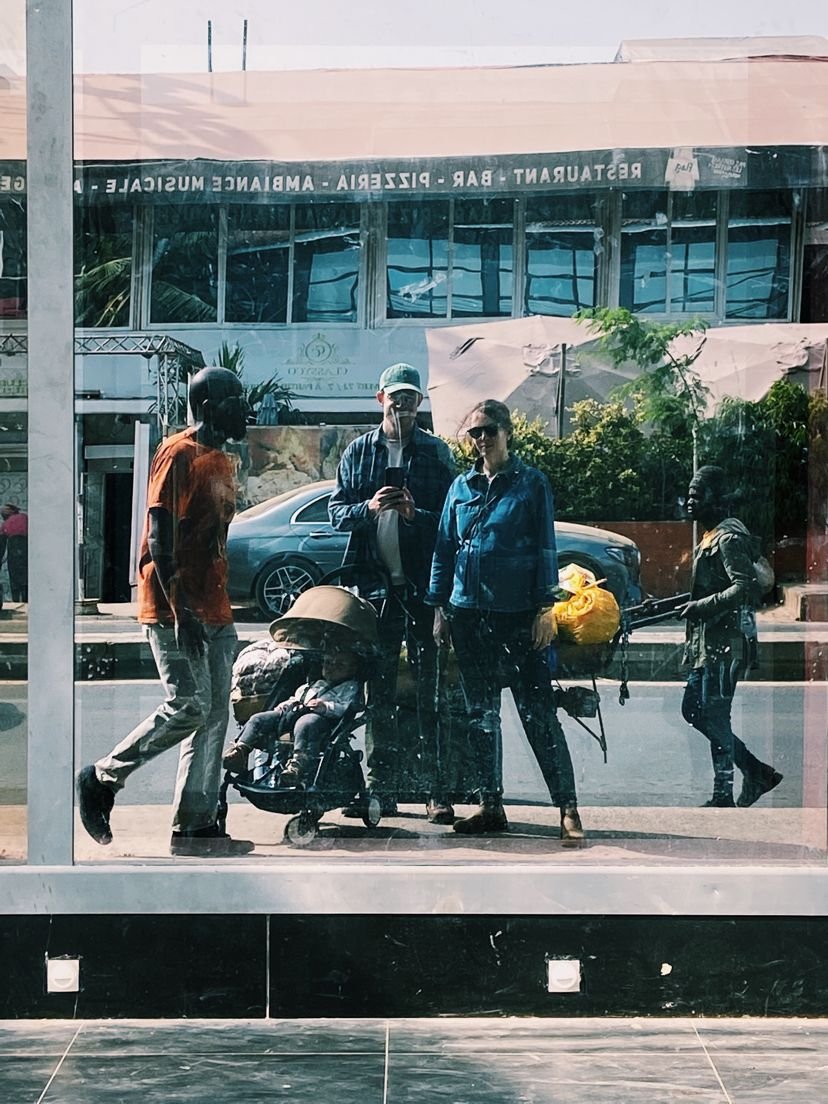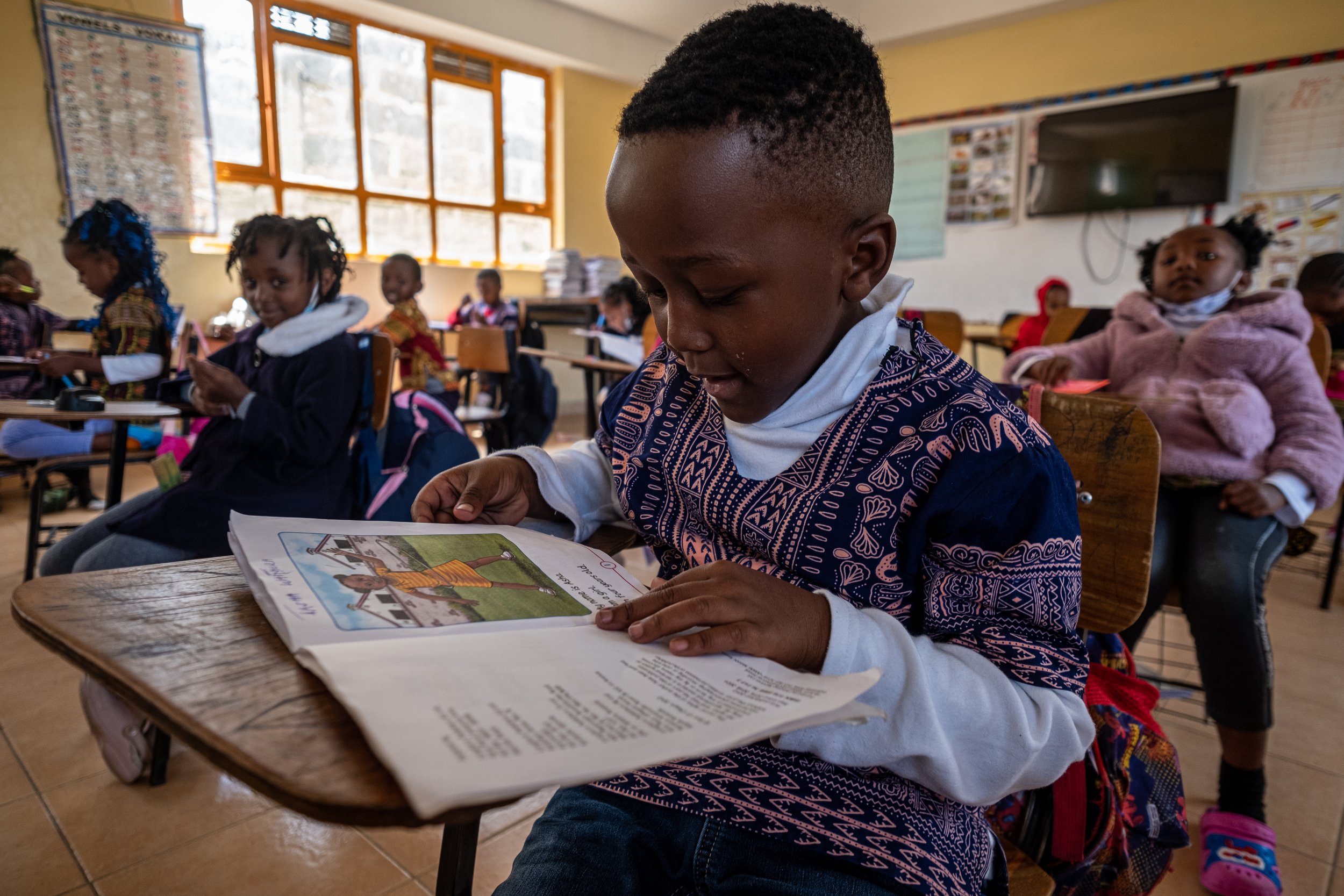Birth announcement card by Philip Hopman.
Concerns about fleeing Sudanese are increasing, including among their compatriots in Egypt
In Egypt, the huge Sudanese population hosts hundreds of thousands of fleeing compatriots. Out of charity, but also out of self-preservation. I wrote down how that works for the Volkskrant.
Sudanese flee to Egypt: "a journey from hell"
After a "journey from hell", tens of thousands of Sudanese are trying to cross the border with Egypt. Women and children do not need a visa, but most men do. For the Volkskrant I traveled to the south of Egypt, where I spoke with torn families who are looking for safety.
The report, with beautiful photos by Rene Clement, is in the paper newspaper today, and online here.
Anti-French sentiments are on the rise in Senegal, and the supermarché is the largest victim
Saucisson, French mustard-flavored chips, six types of Camembert – even the rolls of toilet paper in the Auchan supermarket come from France. That is striking, because this Auchan hypermarché is not on the edge of a French suburb, but in the middle of a residential area of Dakar, the city where my family and I settled a few weeks ago.
Although it is estimated that more than 25 thousand French people live in Senegal, the French supermarket does not only serve the French community: the lion's share of the customers we encounter in the Casino, Auchan and Carrefour supermarkets are Senegalese. The number of Senegalese (from the richer middle and upper class) coming to the Auchan has even increased considerably in recent years, since that big grocer unleashed a price war a few years ago.
The fact that there are so many supermarkets that almost exclusively sell French products says a lot about the close ties that Senegal still has with its former colonizer. Many Senegalese have adopted French eating habits, as I saw when I recently made my first report on baguettes here. More than 8 million typical French baguettes are eaten in Senegal every day, even though the wheat used for the breads cannot grow anywhere in Senegal.
For the story about the baguettes, I spoke to an entrepreneur who wants to get rid of French dependence, a sentiment that more Senegalese companies are responding to. While imported French products often show exactly which region in France they come from, even displaying a proud French flag, there are now more and more companies that consciously profile themselves as a 'Senegalese brand'.
About how those Senegalese brands market themselves, the growing anti-French sentiment in Senegal and its neighboring countries and what French companies (which together are responsible for a quarter of Senegalese GDP) like Auchan are trying to turn the tide , you can read in this column that I wrote for de Volkskrant here.
How RSF became rich by money from Gulf states
Through lucrative deals with Gulf states, the Sudanese paramilitaries became so big, rich and powerful that they can now rival the Sudanese army.
My analysis of how the RSF benefited from the fighting in Yemen is published in today’s edition of De Volkskrant.
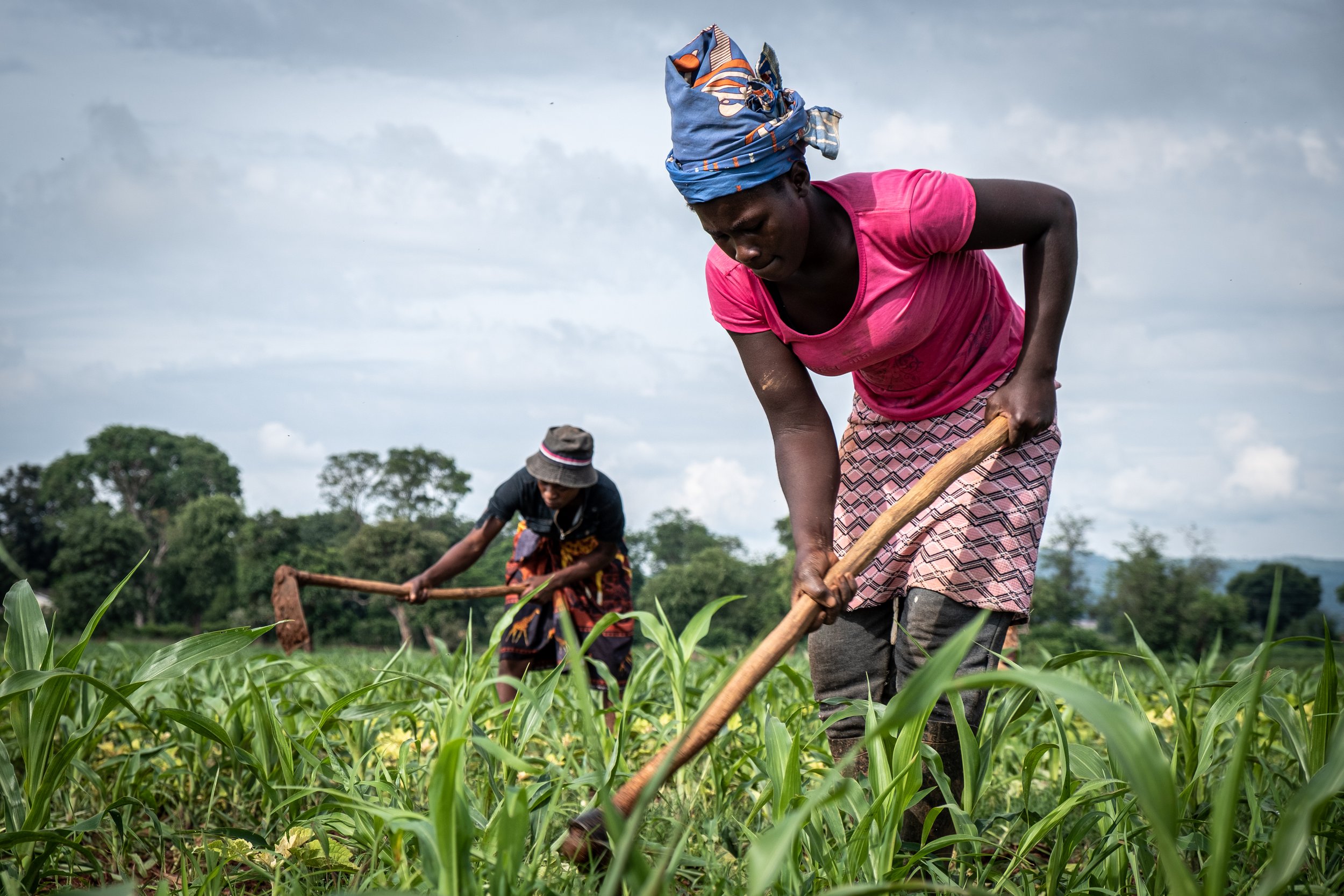
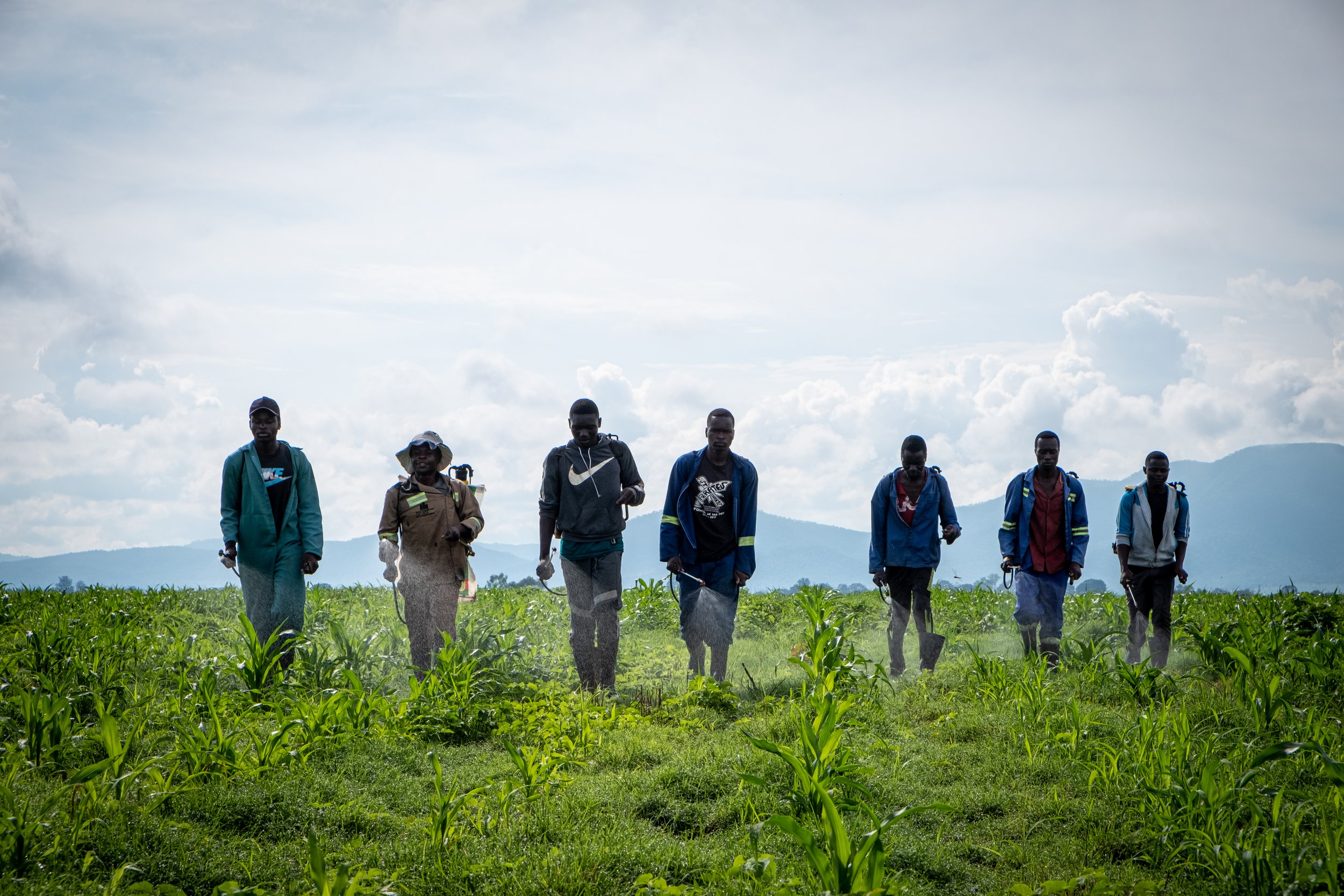
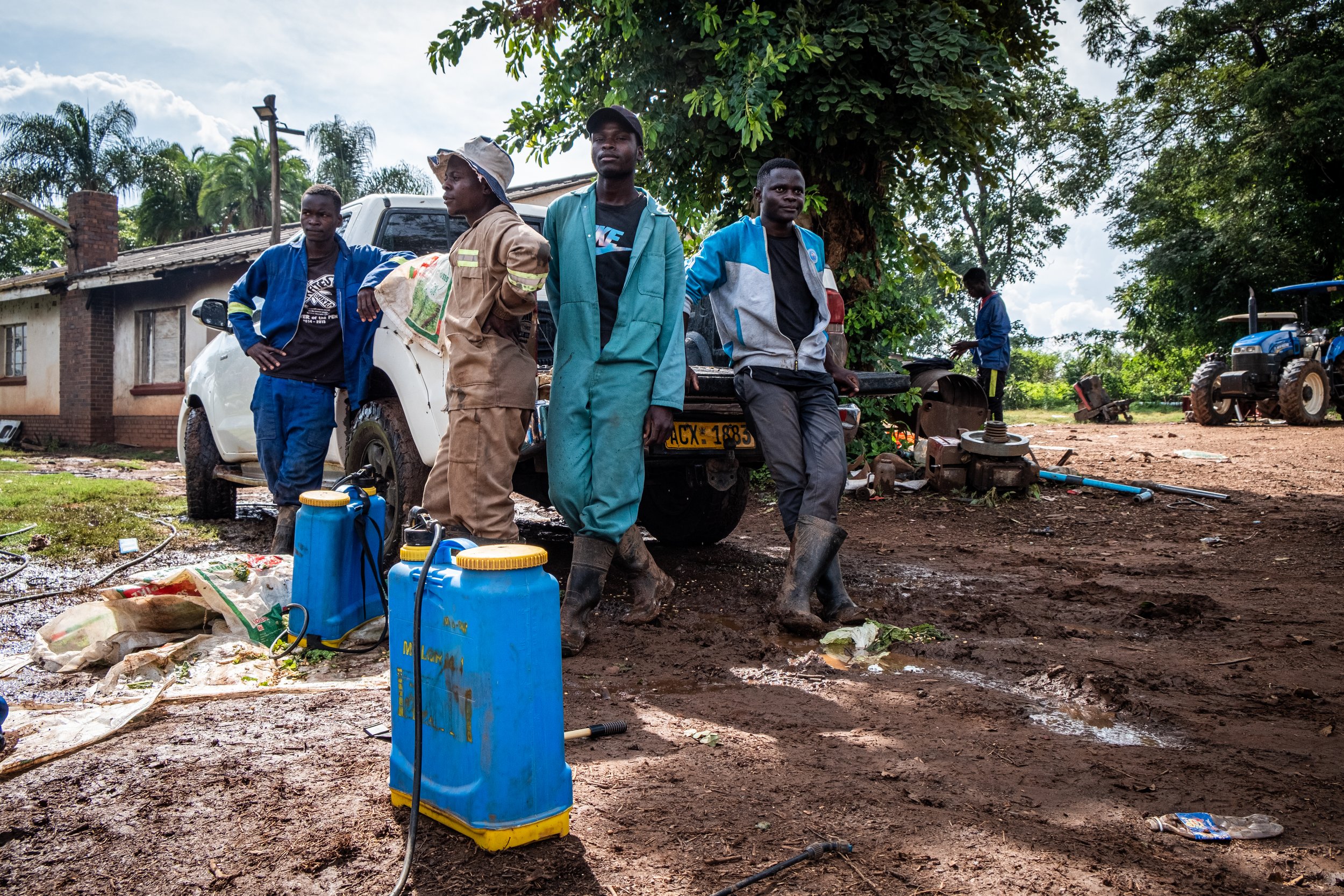
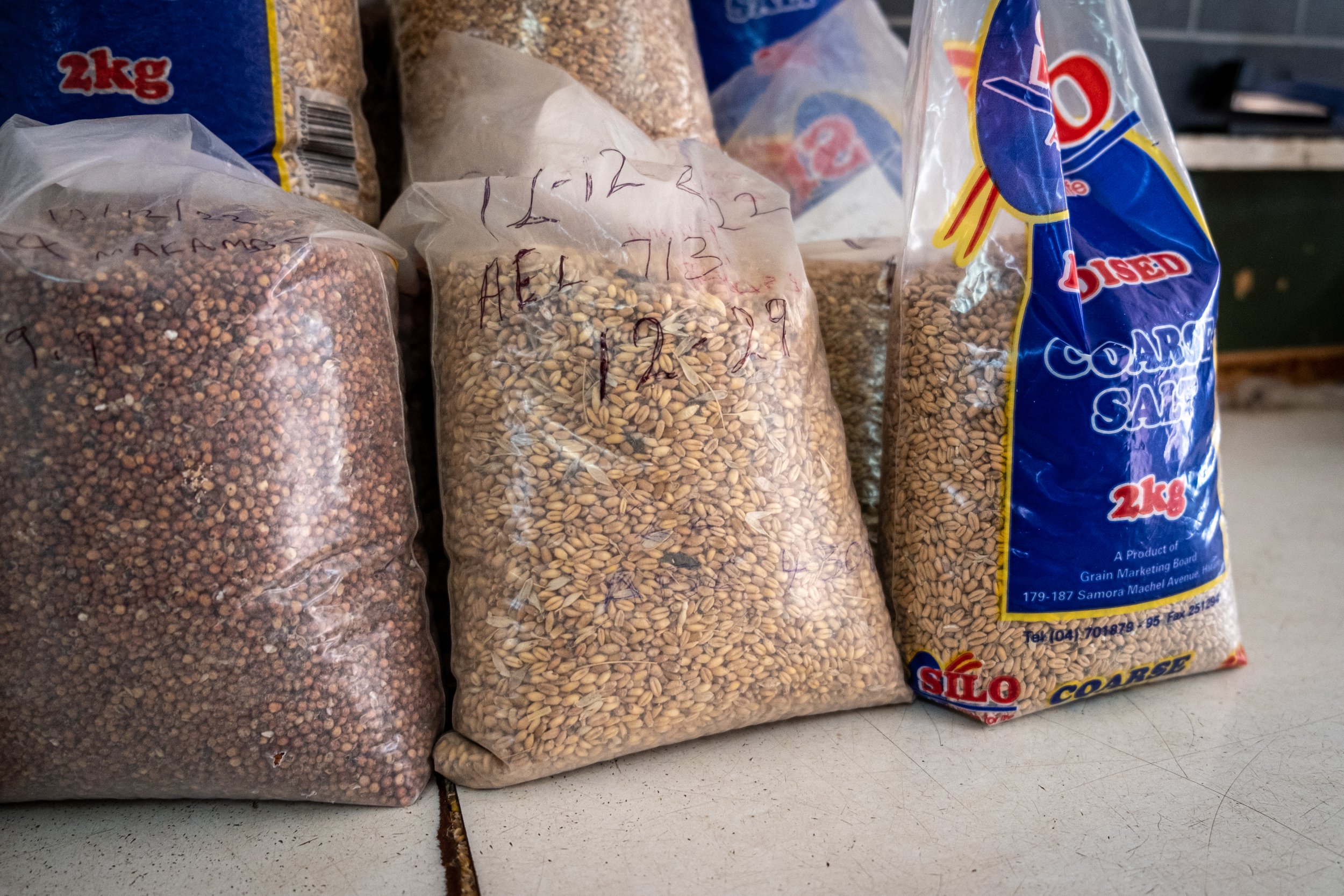
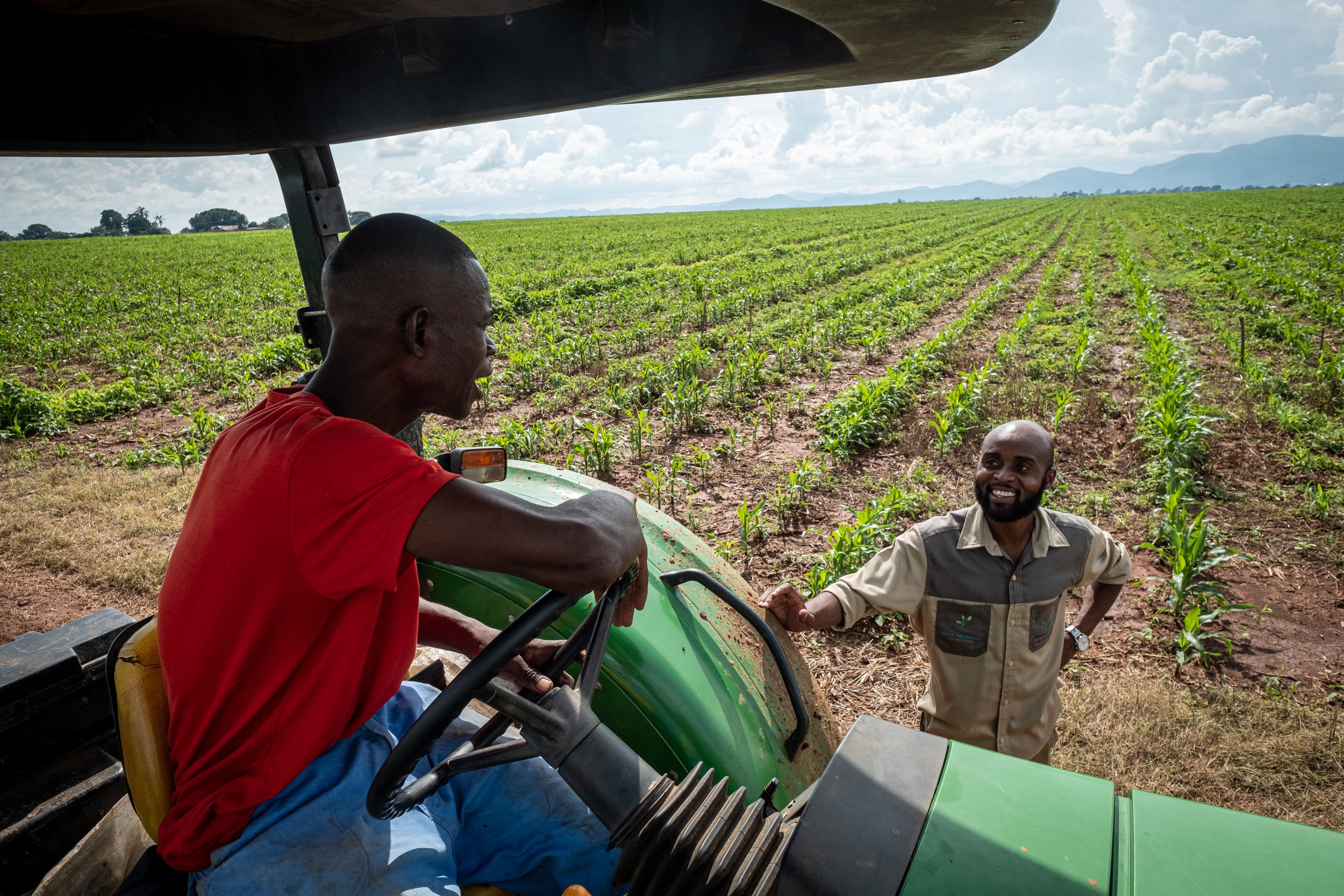
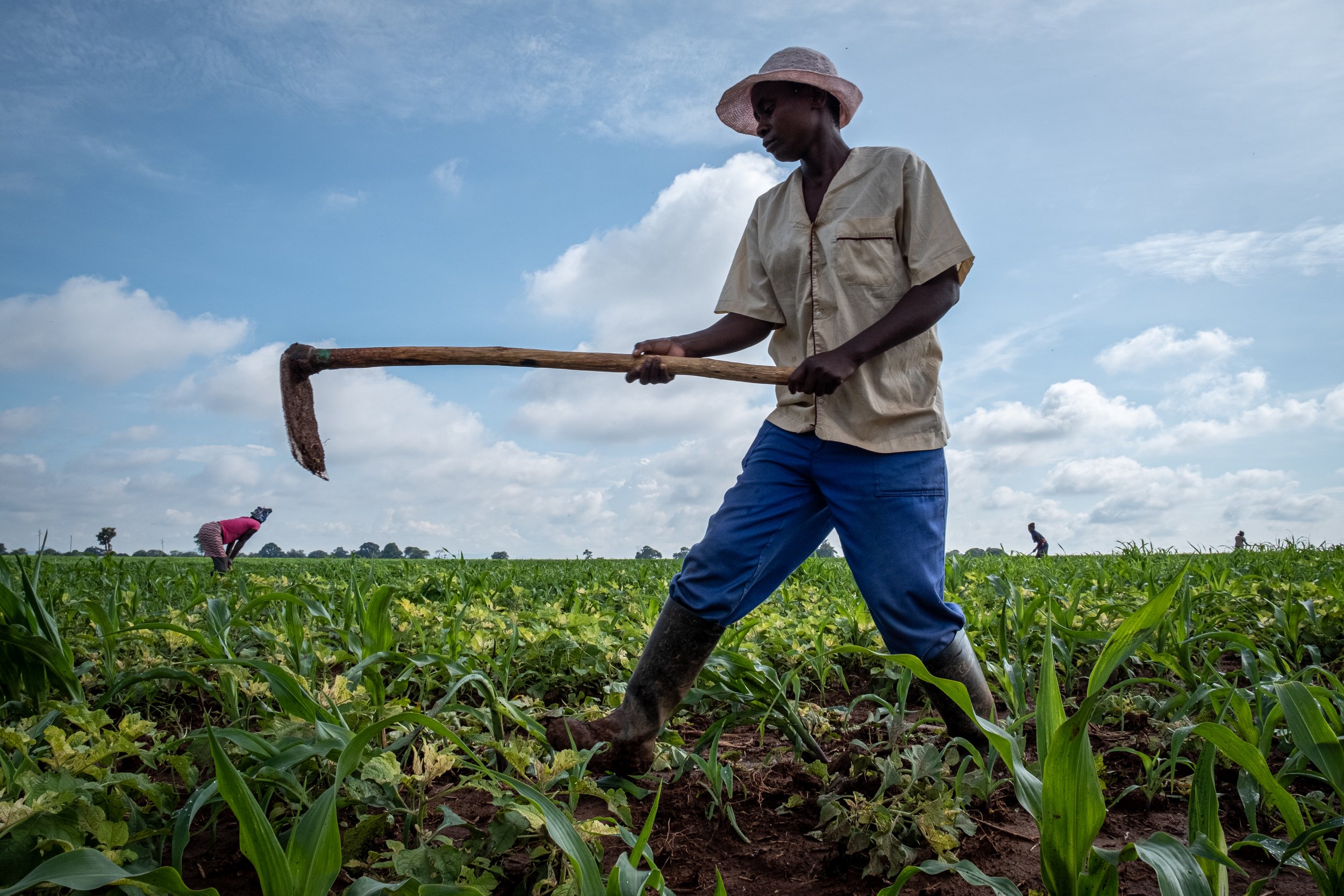
A record wheat harvest for Zimbabwe: a success story from Southern Africa
I recently traveled to Zimbabwe for de Volkskrant, a country with an incredible amount of agricultural potential. After decades of mismanagement, hopeful news is finally coming from the country in southern Africa: last year, a historically large amount of grain was harvested.
Former president Mugabe decided in 2000 to distribute all agricultural land (much of which was owned by white farmers) to black Zimbabweans, causing production of grain, tobacco and maize to plummet. Much of the country quickly deteriorated.
But thanks to enough rainfall and significant investment from the business community, the fields in the Zimbabwean countryside are blooming again. One of the investors who works with farmers is the young Tino Zinyemba, whom I followed for this story.
Tino hunts overgrown plots of land, hoping to add the land to his collection of farms. If he can persuade the owner to allow Zinyemba to cultivate the land, he or she will receive a share of the harvest.
He often approaches landowners who are struggling, he explains. “They often lack the resources or knowledge to grow on their land, or do not have enough money to get outdated equipment working again.”
You can read more about these joint ventures in the major report in the daily section of the newspaper today. The piece is also online here.
Interview: podcast Alledaagse Vragen (BNNVARA)
Do foreign correspondents also get paid when there is no news?
That's what a listener of the BNNVARA podcast ‘Everyday Questions’ wondered. I was allowed to answer that question: https://open.spotify.com/episode/792poD8KHFivxX714zq4pF
Alternatives for wheat - How Senegal is moving to fonio instead
In Senegal wheat cannot grow, but people still eat 8 million baguettes a day. Due to Putin's war in Ukraine, the global grain price has also risen sharply.
A baguette made from (also much healthier) fonio, a climate-resistant grain that has been grown for thousands of years in the dry east of Senegal, therefore offers a solution.
For my first report from Dakar, I visited Réseau MBURU – Mburu means 'bread' in Wolof and Bambara – where Isseu Diop Sakho tries to get the Dakarois to eat baked goods made from forgotten grains.
The story, about the ripple effects of the massive Russian invasion of Ukraine and the decolonization of taste buds, was featured last Saturday with photos by Guy Peterson in the large Ukraine special of the Volkskrant.
We have moved to Dakar!
After a bit more than 5 years in Kenya, it’s time to focus a bit more on the Western side of the African continent. That’s why Saskia and I, with our daughter Lou (and upcoming second daughter) have moved to Dakar, the capital of Senegal. Saskia will be working as the West Africa Correspondent of Dutch broadcaster NOS, whereas I will still be covering the entire Sub Sahara part of Africa for De Volkskrant.
Energy Crisis in Zimbabwe: new work for De Volkskrant
While in Europe there are fears of temporary power cuts this winter, residents of Zimbabwe are sometimes without electricity for weeks.
The country is suffering from an extreme energy crisis, caused by climate change and government negligence. Those who can afford it switch to solar energy, but for many that is not an option.
My photos and the report about the problems that have arisen (but also the solutions) are in the Volkskrant today. You can read the piece online via this link.
A conservation about 'new African conciousness' in podcast Elke Dag
I recently wrote a report for de Volkskrant about Africa's first afrocentric school, run by Dr Utheri Kanayo (aka Susan Kiragu) and her husband Ọkụ in Nakuru, Kenya. Children learn to be proud of their 'African' identity, origin and background.
I have seen this 'new African consciousness' and the 'decolonization of the mind' more often in recent years. That prompted a conversation with Sheila Sitalsing, for Volkskrant podcast Elke Dag - you can listen to that episode by clicking on the link below.
The first Afrocentric School of Africa is growing rapidly
Since the British colonists left Kenya in East Africa, very little has changed in education. That’s the perception of Utheri and Oku Kanayo, who have set up Africa's first afrocentric school: the Children in Freedom School in Nakurum Kenya.
"We want the children to understand that it is a privilege and an absolute honor that they are African."
To read the story I wrote for de Volkskrant newspaper, click here. To listen to the story instead, you can click here for the radio reportage I made for VPRO programme Bureau Buitenland.
Libération: pictures from Somalia
Worrying report written by Patricia Huon from Somalia, where a humanitarian disaster is still unfolding as a result of the worst drought in forty years. “We have lost everything.”
Today, her story (together with some of my photos,) can be read in the French newspaper Libération.
